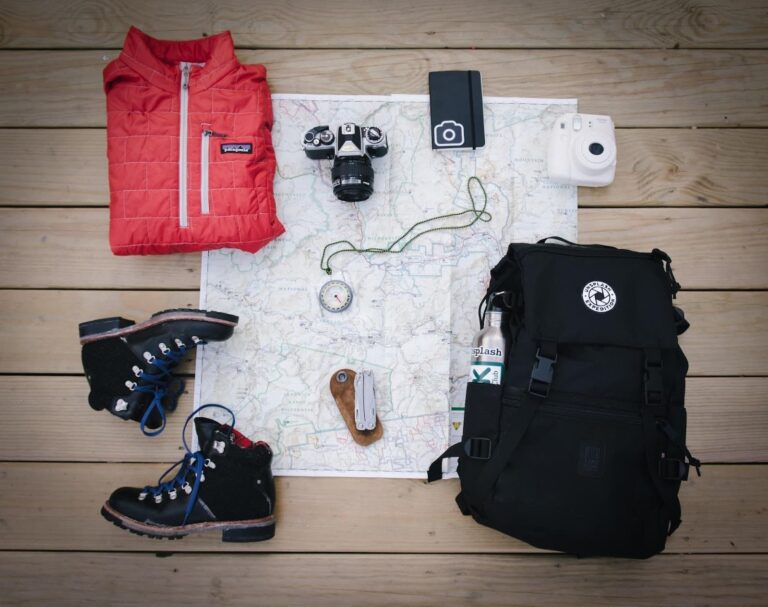6 Things to Know Before Preparing to Study Abroad
Looking to study abroad? For most, it is more than just a dream. It’s an opportunity of a lifetime to gain new experiences in life. But it can also be a daunting task as an international student in a foreign country. In this article, I’ll walk you through 6 things you need to know before jumping on that plane.
1. Research Your Destination
One of the most exciting parts about going to study abroad is that you get to explore and experience a whole new country. Before sending in your application make sure to find out about the university’s reputation, its tuition fees/any other requirements stated on the university’s portal and how great is the student life over there. These are very important things you need to consider before making that decision to study abroad.
Still on researching your destination, research the best local restaurants and see if there are any day trips or weekend trips you can take to really maximise your time. Another little thing that could come in handy is learning a few phrases in the local language. Having a few commonly used phrases in your arsenal can help to make communicating with the locals much easier.
2. Check Visa Requirements
Chances are if you are going through your university, you will probably be advised on which visa to apply for and whether you need to fill out any other forms that will make it easier to go to your country of choice. Visas can often take several weeks to arrive and may take a while to fill out, so make sure you give yourself plenty of time to get one.
It’s also important to make sure that your passport is up to date and will not expire while you are away. Check this well in advance of your departure date as it usually takes a few weeks for a new passport to arrive. You don’t want to get delayed and miss out a lot in your orientation week.
Editor’s Note: Looking to travel / study abroad but unsure about the travel and visa requirements for your travel destinations? Download this comprehensive Travel requirements and Visa protocols guide to stay prepared.
3. Get Insured
This is crucial when you are planning to study abroad in case anything happens to you or your belongings. Shop around to find the best deal and also see if anywhere does any student discounts. This can come in handy if your bag goes missing or if something gets stolen or damaged.
Check whether you need to take any vaccinations before heading out, ensure that you have a good supply of any regular prescriptions (find out how you can access them while away) and ensure that you are covered.
4. Manage Your Finances
Studying abroad is a great experience no doubt because it makes you independent. You learn to buy groceries, pay your taxes, your monthly bills, and save money.
If you’re looking to save for travel, then you must be willing to make some adjustments. Check out these 5 easy steps to help you save for travel.
- Using student loans
Studying abroad can be very expensive as an international student, but smart planning can help you survive easily. Try and get your student discount card as early as you can. This card will help you get discounts on transport, events, movie tickets, restaurants and even shopping. There are many websites that offer student discounts on events and shopping. Make sure you check them out and by doing that, you get to save more to enjoy more.
- Preparing meals at home
Why not learn how to cook? Research shows that students who eat food cooked by them tend to save about 30%-50% of their food budget than students who eat-out. Why eat at fancy restaurants when you can budget and buy fresh ingredients to cook at home? Another option is to cook large portions and save it in the fridge; reheat and have later instead of cooking every day.
- Finding free activities
Eating-out with friends is cool or visiting fancy places but if you are tight on your budget, you should limit the way you spend on shopping sprees, attending cultural events and eating-out. In fact, you could as well invite your friends over for a game of chess instead. (Killing two birds with a stone). You need to understand which activities cost you more than you can leverage.
- Look for cheap ways to travel
If you are like me who loves to explore her environment, I will say go for it! Every destination is loaded with amazing places, so make sure you have fun. Believe it or not, most of them come free or at nominal costs. Look up for such places, ask the locals around for recommendations, ask the school union leaders, make a group, and go exploring.
See also: How to get cheap accommodation and flights
- Checking your budget from time to time
It is important to know what your current financial status is and create a practical budget plan. Include factors like monthly rent, grocery, data charges, study materials, utility bills, recreation, transportation, health, takeaways, gifts and travel. Also, it is wise to save some amount of funds each month for unexpected situations or emergencies.
5. Flimflam Your Academics
You definitely want to enjoy your college life with your new friends when you study abroad. But it is also important to remember to juggle between your part-time job, your studies, and social life. You can work a few hours and have all the fun on weekends while focusing on your academics on the weekdays.
Try making and following a time table. It helps a lot to keep track of all the things you want to do so that you don’t miss out on anything and are on time with your commitments. Punctuality is a virtue you’d soon realize that is often forgotten but can truly take you a long way.
6. Packing List
As you plan for your journey abroad, you obviously need to pack all the essentials. So, here are 4 helpful tips on what to pack when studying abroad.
- Pack for the weather
Be smart while you pack. Always consider the weather of the destination country and pack accordingly. Research the climate and the average temperature of the place you have chosen so you can pack the appropriate clothes from your home country. This will help you to be intentional with your spending.
Another quick tip for packing, rolling your clothes rather than folding them helps you in saving some room in your suitcase for the other things and keeps your clothes wrinkle-free. Be sure to add some just-in-case clothes to your study abroad packing list.
- Cross-check bag policy
There are limitations on the weight of your luggage, so make sure to check that before you start. In most countries you’ll find hygiene and toiletry products similar to the one you use in your native country. Bring a travel-size amount of soap, body/hair creams and you can buy the rest when you arrive in your destination. Try and limit yourself when it comes to stuffing your bags full of heavy beauty products or avoidable items.
- Keep your valuable safe
Without your Passport and student visa, you will not get far. Keep your passport, student visa, tickets, boarding passes and accommodation details easily to fill in the landing card when you land in a foreign country. The safest place for your passport is locked in your accommodation and always carry a photocopy or ID when you’re sightseeing or out at night. Be cautious about where you keep your money. Try to keep your money in money belts and anti-theft accessories.
- Phone plan
Phone? of course! This is an essential item when packing to study abroad. You never know if you’ll suddenly need to make a call at the airport, so make sure it is fully charged and has enough data on it. You might need to use your data for Google Maps, or search for information like a taxi company to pick you up at the airport but most colleges have an arrangement for that.
Before you travel, make sure to check with your mobile phone provider if they have international plans with the country you’re moving to and if it’s still affordable. If not, be sure to sign up for a mobile plan at the airport once you touch down so you have one less thing to worry about.
Note: If you can, pack a cheap backup phone just in case something happens to yours. You can never be too careful.
See also: What to Include in Your Travel Starter Pack When Planning to Study Abroad
Bonus Tip:
7. Always Keep Your Safety a Priority.
While there are several benefits of going abroad, always keep your safety first. Studying abroad is safe if you are always aware of your surroundings. Avoid walking alone at night to your accommodation or any place unless you are with a group of friends. Use local transport even if it hurts your pocket a little!
Keeping an extra key to your house or your room is also one of the safety precautions. Lock your bags and keep spare keys for the lock as you travel. It is always great to have emergency contact numbers handy along with saving them on your phone, write them down in a small diary or a notepad in case you lose your phone.
Wrap Up
While this guide is not an exhaustive list of all that you need to keep in mind when planning to migrate abroad for study, I truly hope that these tips help you in your journey and stay abroad.
If you’re in need of further assistance, visit Urban Nomads to speak with our academic consultants who will make your study abroad dreams possible.








Hello waka doctor my name is Paul I follow u on Twitter and am also part of the urban nomad Japa group.
I have been in contact with the consultants and based on my budget at hand these countries were suggested to me Belarus, Poland, and Lithuania. I decided to update my senior brother who resides in turkey of plan only for him to bring fear and discouragement about the countries I mentioned. I am someone who doesn’t fear easily but when someone you look up to tells you things like this easily the issues of no work and racism in these countries, it just weakens me
I would love it if you can advise me on what to do thank you